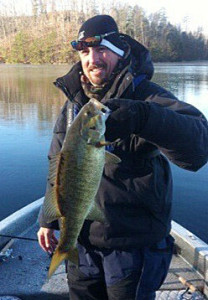By Chris Erwin
Each new year ushers in changes, and for the last couple weeks I have been going over them so we can pass them along to our readers. Some will have little effect in the short run but may have long-range benefits.
The Kentucky Fish and Wildlife Law Enforcement Division has announced a new director. Last week, Kentucky Fish and Wildlife Commissioner Gregory K. Johnson announced the appointment of Harry Joseph “Joe” West, a retired Kentucky State Police Lt. Colonel and the Director of the Rangers Division at Kentucky Department of Parks, to head the 130-member division.

West, 61, assumes his Fish and Wildlife duties after leading the Rangers Division for the past 20 months. He retired from the Kentucky State Police in 2008 after nearly 30 years of service. West holds a Bachelor of Science Degree in Law Enforcement and a Master of Science Degree in Criminal Justice from Eastern Kentucky University. He also is a 1989 graduate of the FBI National Academy in Quantico, Virginia.
Kentucky to help Wisconsin boost its elk herd
Kentucky will help Wisconsin boost its elk herd by providing 150 elk cows, calves and yearling male elk over the next 3-5 years.
“Kentucky’s own free-ranging elk herd began with the release of seven elk from Kansas in 1997,” said Commissioner Gregory K. Johnson of the Kentucky Department of Fish and Wildlife Resources. “We eventually released more than 1,500 elk from six states to create a herd of approximately 10,000 elk in Kentucky today. It is fitting that we pay this debt forward by partnering with the Wisconsin Department of Natural Resources to help them build their own herd.”
Wisconsin officials announced the finalized agreement between the two states this week and said they were looking forward to re-establishing their elk population. Wisconsin will pay the cost of the translocation program and will also assist Kentucky financially in the development of forest habitat projects in eastern Kentucky, which will benefit wildlife, with a special emphasis placed on ruffed grouse.
“This will enhance our current forest management efforts in eastern Kentucky, which is critical for improving ruffed grouse populations,” explained Chris Garland, acting Wildlife Director for Kentucky Fish and Wildlife.
“Cooperation is how wildlife agencies do business,” added Kentucky Fish and Wildlife Elk and Deer Program Coordinator Gabe Jenkins. “Agencies help each other for the benefit of all.”
The Rocky Mountain Elk Foundation, which was instrumental in the establishment of Kentucky’s elk herd, will supply additional support.
Elk trappers in the coming weeks will focus on areas with the highest number of complaints about nuisance elk. Only cows, calves and yearling male elk will be relocated.
Elk will be held in quarantine in Kentucky for disease testing before being transported to Wisconsin for the calving season. Wisconsin Department of Natural Resources employees will assist with the trapping, disease testing and elk caretaking while the animals remain in Kentucky.
Kentucky Fish and Wildlife to survey anglers across the state
The fisheries division of the Kentucky Department of Fish and Wildlife Resources is conducting a survey to assess angler attitudes, opinions and fishing habits.
A random sample of 1,800 resident anglers who purchased an annual fishing license in 2014 will receive a survey booklet in the mail. The fisheries division mailed surveys Jan. 12.
“Even if fishing isn’t particularly important to them or they are not experienced anglers, we still want their opinion,” said Dave Dreves, fisheries research biologist for Kentucky Fish and Wildlife. “For this survey to accurately represent all persons fishing in Kentucky, it is vitally important for each angler who receives a survey to complete it.”
Anglers will be asked the types of areas they fish, species pursued, fishing frequency and their motivations. The survey also includes questions about their beliefs concerning policies and regulations of Kentucky Fish and Wildlife. Responses from survey participants will help guide the future direction of fisheries programs.
Dreves encourages those who receive a survey to fill it out completely and return it to Kentucky Fish and Wildlife with the envelope provided as soon as possible.




Be the first to comment